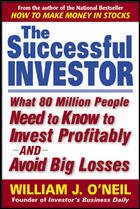Ionics (ION - P2.16) Looks To Turnaround
I saw a report on Ionics written by Abacus Securities published in Finance Manila - http://www.financemanila.net/forum/viewtopic.php?t=356&postdays=0&postorder=asc&start=30
Abacus Securities expects Ionics to earn P161m (EPS – P0.38) in 2006 and P332m (EPS – P0.76). After 3 years of losses, Ionics looks to turnaround its operations this year. The crucial signal is for Ionics to report positive 2Q06 numbers to prove that 2006 will indeed be a turnaround year. In fact, Ionics reported a small profit in March.
I love turnaround stories! This gives investors considerable upside potential.
Based on the numbers presented by Abacus Securities, I believe Ionics should be trading at P4.20 per share. Here is how I arrived at my price target:
1.) Value of Core manufacturing business is P2.66. This is based on 7x 2006 earnings.
2.) Value of other assets, which includes cash and marketable securities amounts to P676m or roughly P1.60 per share.
3.) Adding both values equals to P4.20.
At these levels, investors are paying only for the value of its other assets (P1.60) and effectively paying 1.5x PE on its manufacturing business. I guess the stock looks too cheap to ignore.
Abacus Securities expects Ionics to earn P161m (EPS – P0.38) in 2006 and P332m (EPS – P0.76). After 3 years of losses, Ionics looks to turnaround its operations this year. The crucial signal is for Ionics to report positive 2Q06 numbers to prove that 2006 will indeed be a turnaround year. In fact, Ionics reported a small profit in March.
I love turnaround stories! This gives investors considerable upside potential.
Based on the numbers presented by Abacus Securities, I believe Ionics should be trading at P4.20 per share. Here is how I arrived at my price target:
1.) Value of Core manufacturing business is P2.66. This is based on 7x 2006 earnings.
2.) Value of other assets, which includes cash and marketable securities amounts to P676m or roughly P1.60 per share.
3.) Adding both values equals to P4.20.
At these levels, investors are paying only for the value of its other assets (P1.60) and effectively paying 1.5x PE on its manufacturing business. I guess the stock looks too cheap to ignore.

